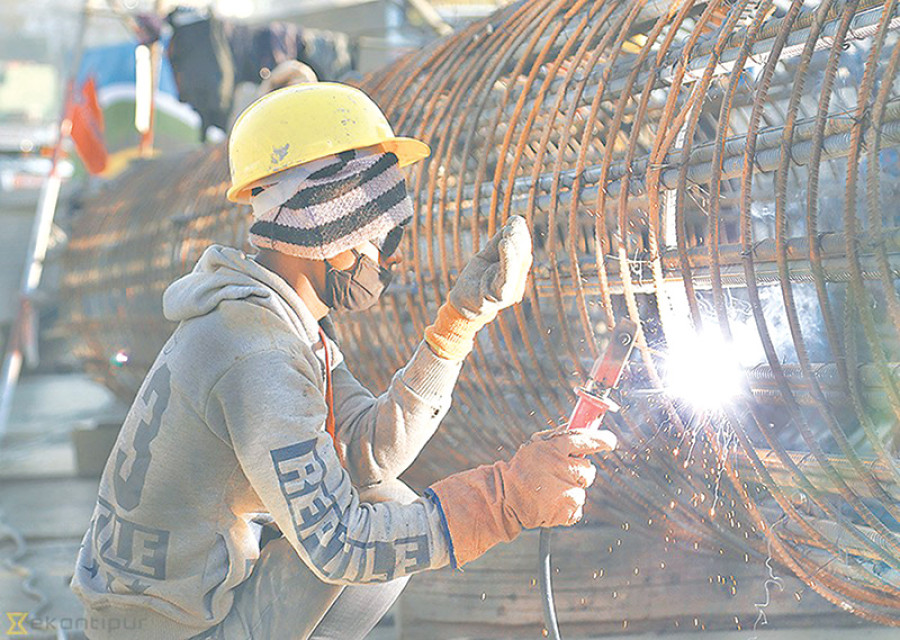Tue, Mar 3, 2026
Money
‘Nepal now self-sufficient in iron, steel materials’
Nepal has become self-sufficient in iron and steel materials due to increased production from old players who have been expanding capacity and new players joining the business, domestic iron and steel manufacturers have claimed.
bookmark
Krishana Prasain
Published at : November 21, 2018
Updated at : November 21, 2018 11:15
Kathmandu
Nepal has become self-sufficient in iron and steel materials due to increased production from old players who have been expanding capacity and new players joining the business, domestic iron and steel manufacturers have claimed.
Kiran Saakh, vice chairman of Nepal Steel Rolling Mills Association, said that the annual demand for iron and steel currently stands at around 2 million tonnes and domestic producers are supplying the required quantity in the market, he said.
New investment in the industry is a result of increased development works, boom in the construction of houses and commercial buildings, producers said, adding that iron and steel demand has been increasing by 10 percent annually.
Domestic iron and steel manufacturers have been producing steel bars, rods and galvanised corrugated sheets for roofing.
After the earthquake of 2015, Nepali iron and steel companies have been more focused in producing iron and steel materials for reconstruction purpose that assures safety of the structures.
The country has also been able to produce 32 mm iron rods that are required for the construction of large hydropower projects and other infrastructure. Himal Iron and Steel and Jagadamba Steels have been producing 32mm iron bars in the country.
Shalimar Steel recently expanded its production capacity, said Ashok Kumar Baid, director of the company. After the capacity expansion, the annual production of the company now stands at 25,000 tonnes, he said.
Shalimar Steel said it had invested Rs500 million as part of their expansion project.
Panchakanya Group is now capable of producing 100,000 tonnes of TMT steel bars annually by expanding its production capacity recently, said Pradeep Kumar Shrestha, managing director of the company. Panchakanya Steel made an investment of Rs700 million to boost output, he said.
Narayani Strips has been producing 150,000 tonnes of TMT bar annually, said the company.
A new steel company in Birgunj is expected to come online within six months, industry insiders said. The new company has invested Rs1 billion in the project.
Almost 90 percent of raw materials are imported from India. The remaining comes from third countries.
Meanwhile, Nepal has been importing raw materials and other related materials to manufacture rebar.
The country imported MS steel billet, a major raw material, worth Rs459.5 million in the last fiscal year.
Meanwhile, the country exported flat-rolled products of iron or non-alloy steel of Rs341.20 billion in the last fiscal year, against the export of Rs240.42 billion in the previous fiscal year.
Most Read from Money
Editor's Picks
Five and half decades of KP Oli in Nepali politics
How Facebook’s algorithm is amplifying one party over all others
Nepal’s IT exports near $1 billion. Can the momentum be sustained?
Parties’ lofty pledges on economy collide with hard realities
Upper house passes tourism bill with tougher Everest rules
E-PAPER | March 03, 2026
×




 9.7°C Kathmandu
9.7°C Kathmandu















